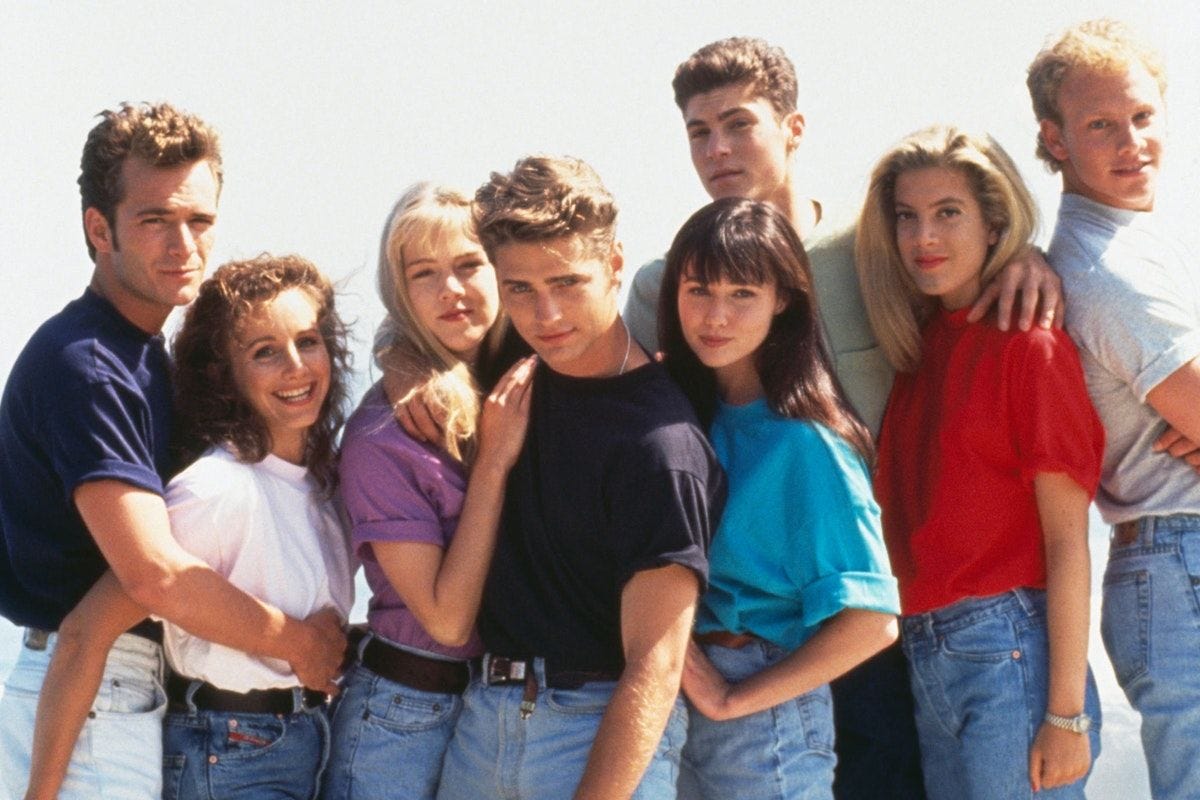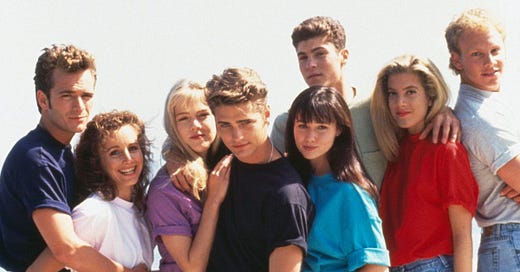First look at Netflix's $125m The Irishman. PLUS: Ready yourself for BH90210! ALSO: Quibi goes sideways!
Always Be Watching is written by Dan Barrett who has a drawer full of Models Inc reboot ideas.

Beverly Hills 90210 is coming back to TV by way of what I suspect will turn out to be an ill-advised meta-commentary reunion series. (Really - I don’t want to watch a show about the actors parodying themselves while making a reunion. It will never be as good as the Seinfeld reunion in Curb. Just give me new stories with Kelly and Brandon)
In the lead-up …




